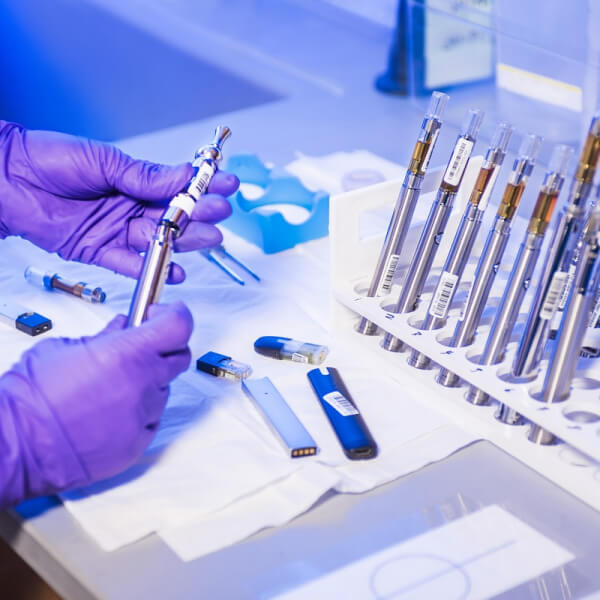Services
Office Endoscopy
I am item content. Click edit button to change this text. Lorem ipsum dolor sit amet, consectetur adipiscing elit. Ut elit tellus, luctus nec ullamcorper mattis, pulvinar dapibus leo.
Audiological Services
All Services
What is Newborn Hearing Screening?
Newborn Hearing Screening test helps you identify if your baby has any impairment. Out of every 1000 newborns, 1 to 2 babies suffer from hearing loss in one or both ears. And in 90% of the cases, these are from families with no history of hearing loss. This screening help parents understand the treatment right from the start.
At The Hear Lab, we provide parents the necessary support needed to navigate the process and offer solutions.
Newborn Hearing screening is not mandatory in India, except when the pregnancy and/or delivery involves complications.
Newborn Hearing Screening should be done within the first 4-5 weeks and can be done upto 3 months of age.
Finding out early is gives your babies a better chance to develop communication skills. The sooner we know, the sooner we can provide the necessary treatments and therapies.
The screening just takes a few minutes and is not upsetting to you or your baby.
There are 2 types of Newborn hearing Screening methods:
– Otoacoustic Emissions and
– Auditory Brainstem Response Test
At The Hear Lab, our expert team of Pediatric Audiologists offer complete support and guidance through this process. Our compassionate staff and vibrant environment offer you an empathetic and comfortable setting.
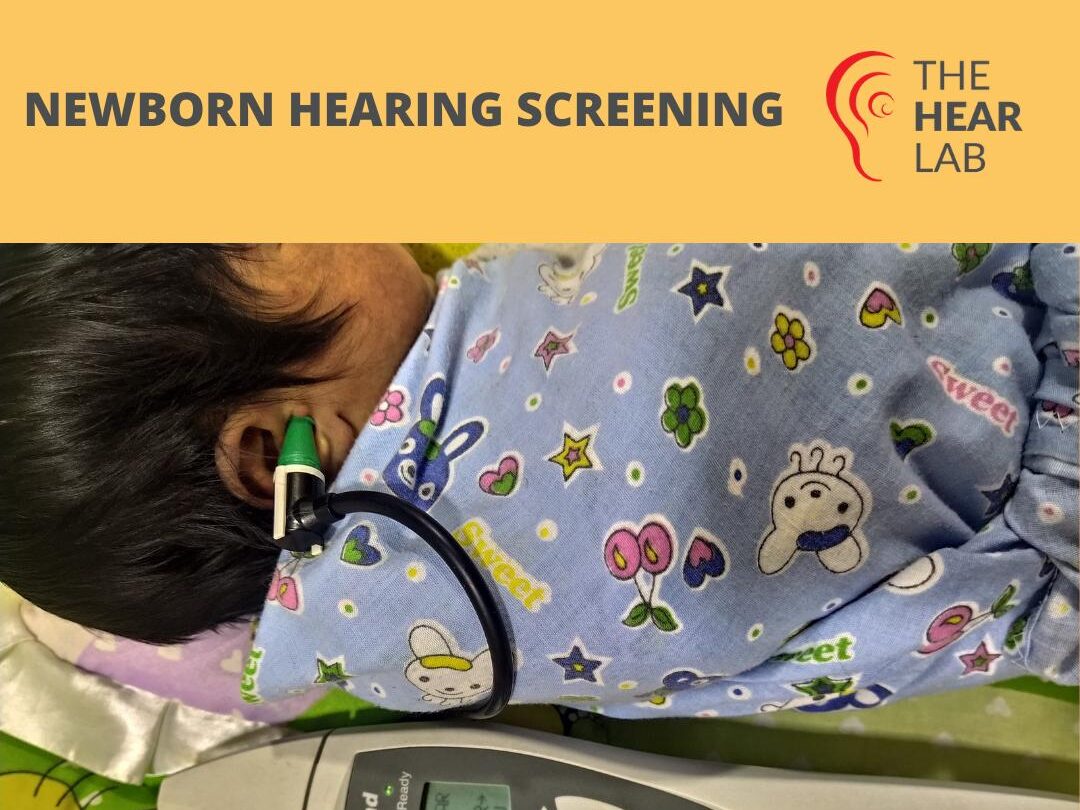
In Auditory Brainstem Response test, 3 small sensors are attached on the baby’s head and neck. A pair of small headphones are also placed over the baby’s ears. These are unintrusive objects and it does not harm or make the baby uncomfortable in any way.
This test takes 30- 45 minutes.
We strongly recommend that you feed the baby shortly after the tests to keep the baby happy and comfortable.
World Health Organisation (WHO) and National Sample Survey 2002 suggests that 6-16% of Indians suffer from hearing loss. However, 50% of hearing loss is preventable if detected early.
Any kind of inability of hearing impairment can lead to anxiety, depression and low self-esteem.
At the Hear lab, we recommend in taking an Audiometric Test to understand your intensity of hearing.
Degrees of Hearing Loss
Normal hearing – (0-25 dB): Hearing is normal at this level.
Mild Hearing Loss (26-40dB) – A mild hearing loss may cause an inability to focus and increased efforts in listening.
Moderate Hearing loss (41–55 dB): It may affect articulation and overall communication with peers. This causes trouble in hearing some conversational speech.
Severe Hearing loss (71–90 dB): Severe hearing loss severely affects overall communication.
Profound hearing loss (>90 dB): With profound hearing loss (deafness), speech and language deteriorate.
At The Hear Lab, the audiometry tests are conducted in a quiet soundproof room. Each patient is given earphones to be placed on your head, which are connected to a machine. This machine delivers the tones and different sounds of speech to your ears, one ear at a time. Our audiologist will ask you to raise your hand when you hear a sound. The audiologist will record each tone at the lowest possible volume that you were able to hear it.
The test carries no risk and requires no special preparation.
Based on the results, our in-house Audiologist will be able to ascertain the intensity of hear-loss and recommend future course of action.
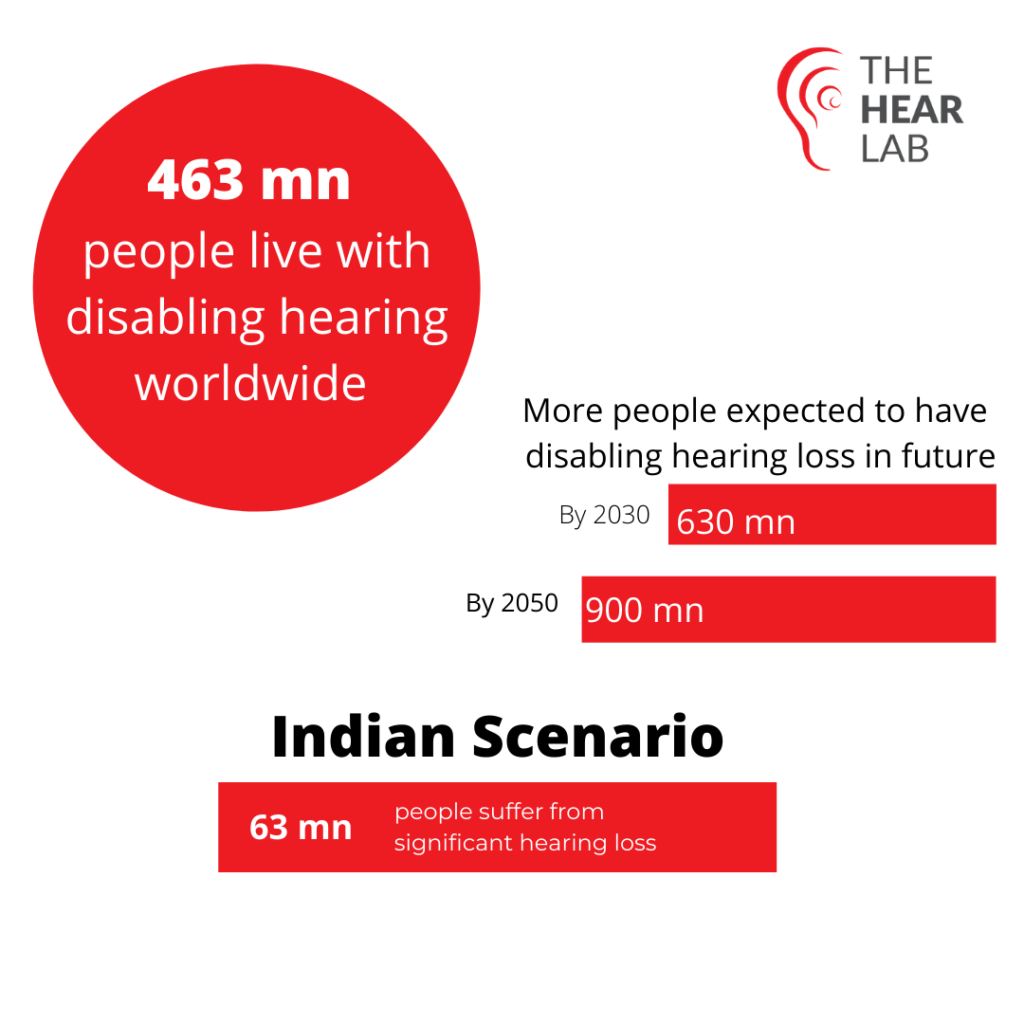
What is Tympanic Membrane?
In common parlance, tympanic membrane is the eardrum. It is a thin cone shaped membrane that divides the external ear from the middle ear.
The job of the ear drum or tympanic membrane is to transmit sound from the outer ear to the middle ear. When sound waves hit the ear drum, it vibrates which are then transmitted to the middle ear. The tiny bones of the middle ear then transmit the sounds to the inner ear.
Why is Tympanometry Test needed?
Sometimes this middle ear cavity may gather fluid, thereby impacting your hearing abilities as sound is muffled in the presence of water. A Tympanometry Test tells you if there is fluid in the middle ear.
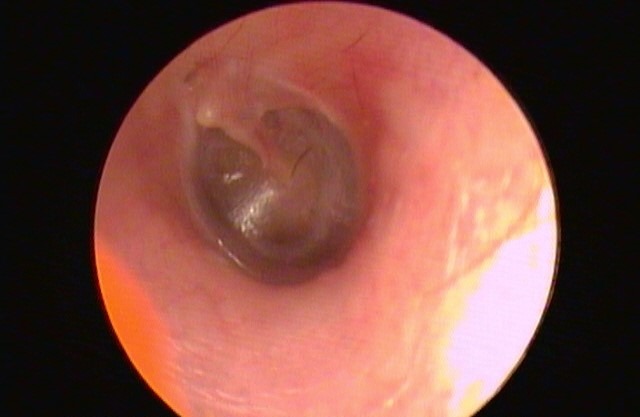
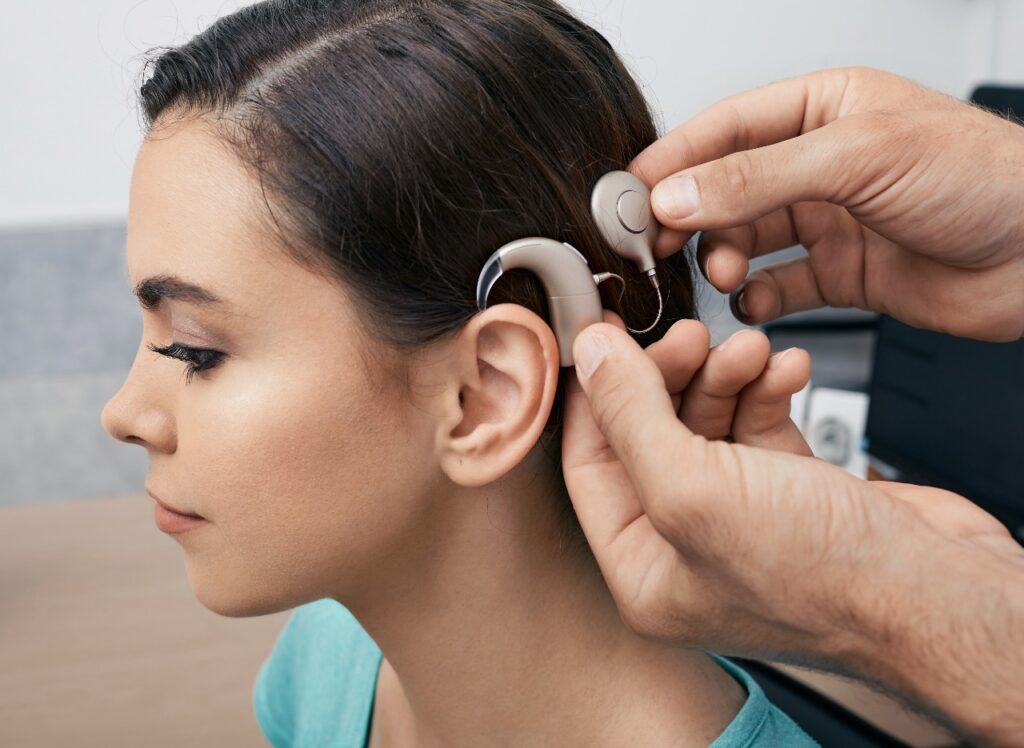
COCHLEAR IMPLANT COUNSELLING
What you need to know about Cochlear Implants?
If you or your family member suffers from severe to profound hearing loss, Cochlear implants may be the solution for you.
There are degrees of hearing loss:
Normal hearing Loss– (0-25 dB): Hearing is normal at this level.
Mild Hearing Loss (26-40dB) – A mild hearing loss may cause an inability to focus and increases efforts in listening.
Moderate Hearing Loss (41–55 dB):This may affect articulation and overall communication with peers. This causes trouble in hearing some conversational speech.
Severe Hearing Loss (71–90 dB): Severe hearing loss severely affects overall communication.
Profound hearing Loss (>90 dB): With profound hearing loss (deafness), speech and language deteriorate.
If you have ‘Severeto Profound hearing loss, a Cochlear Implant can be the right solution to living a better life again.
What is a Cochlear Implant?
Cochlear implant is a two-part electronic device that stimulates the hearing nerve (cochlear nerve) in your ear. It consists an external part which has the microphone and the speech processor that sits behind your ear. The internal part which consists of the implant and electrode array, is surgically placed and is not visible.
How does Cochlear Implant work?
The microphone that is lodged outside your ear picks up sounds from the environment. It then processes the sounds and sends it to the internal part of the implant.
The internal part consists of a thin wire and small electrodes implanted through a short stay surgery. The electrodes lead to the cochlea which is a part of the inner ear. After receiving signals from the microphone, the wire converts them into electric impulses. The electrodes collect these impulses and send them to different areas in the auditory nerve which leads to the brain. The brain recognizes these signals as sound.
It is a myth that Cochlear implant is a kind of a brain surgery. Hearing through Cochlear implant is different from normal hearing. It takes repeated learning over a period of time.
At The Hear Lab, we help you with Cochlear Implant surgeries as well as Counselling.
Contact us or drop in at our clinic to know more.

Do you experience constant ringing in your ear, even if it is not playing outside? If yes, chances are you are experiencing Tinnitus.
Tinnitus is a condition wherein an individual hears sounds like ringing, hissing, clicking or buzzing in one or both ears. It is a ‘head noise’ which is not present in the ambience.
Almost everyone experiences this after listening to loud music or sudden loud noise.
At The Hear lab, we understand how disturbing it can be to continuously hear an unwanted sound that is not present in the environment. In fact, it can get difficult to identify it in a child because they do not know what it is and how it makes them feel.
At The Hear Lab, we offer Tinnitus Therapy for adults and children alike.
Other Services
All other services offered. Contact us for more information.
I am item content. Click edit button to change this text. Lorem ipsum dolor sit amet, consectetur adipiscing elit. Ut elit tellus, luctus nec ullamcorper mattis, pulvinar dapibus leo.
I am item content. Click edit button to change this text. Lorem ipsum dolor sit amet, consectetur adipiscing elit. Ut elit tellus, luctus nec ullamcorper mattis, pulvinar dapibus leo.
Our Expertise
Ear
Nose & Sinuses
Voice Box
Thyroid & Parathyroid
Salivary Gland
Oral Cavity
Throat
Neck



